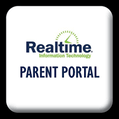|
Experiential learning is a well-known model in education. Kolb's Experiential Learning Theory (Kolb, 1984) defines experiential learning as "the process whereby knowledge is created through the transformation of experience. Knowledge results from the combination of grasping and transforming experience."
Experiential learning involves the whole student, meaning not just their intellect but also their senses, their feelings and their personalities. Experience-based activities facilitate learning for students with a variety of learning styles. Students with learning disabilities greatly benefit from activities that enable them to make a personal connection to concepts introduced by drawing upon their own personal experiences. This enables students to relate to subject matter in a way that is most meaningful to them. When students are actively involved in what they are learning, their retention rate increases. They are more apt to store the information in their memory bank for retrieval in the future. As a teacher who takes pride in providing my students with Experienced Based Instruction, I can attest to the fact that Kolb’s model is greatly effective. My students are highly motivated by the activities I incorporate into my daily lessons. Deb Castelluccio, Teacher, Celebrate the Children
0 Comments
Leave a Reply. |
AuthorsContributions to this blog are made by Celebrate the Children's highly talented, interdisciplinary team and wonderful families. Archives
January 2022
Categories
All
|
|
OUR SCHOOL
|
UPCOMING EVENTS
Ride For Autism
Saturday, May 4, 2024 Let's Play! 20th Anniversary Gala
Thursday, May 16, 2024 |
CONTACT
230 Diamond Spring Road
Denville, New Jersey 07834 ph: (973) 989.4033 fax : (862) 244.4969 |
|
Interested in learning more about our program?
|
Anti-bullying Coordinator:
Jennifer Carucci jcarucci@celebratethechildren.org 973-989-4033 Ext 413 |
2023 Celebrate the Children

 RSS Feed
RSS Feed

